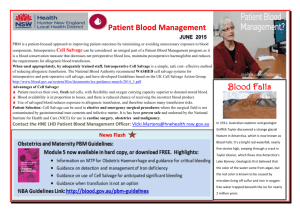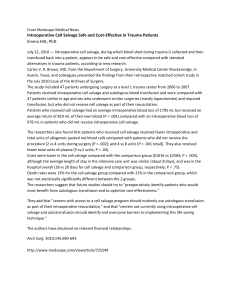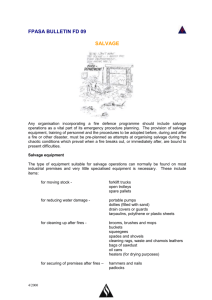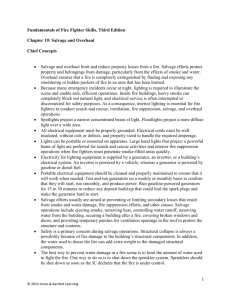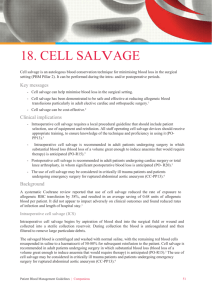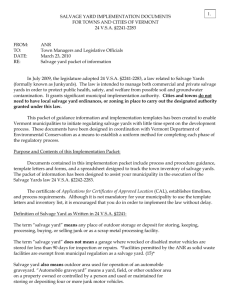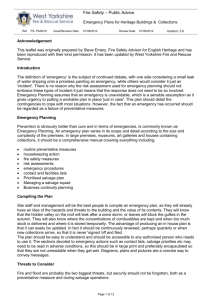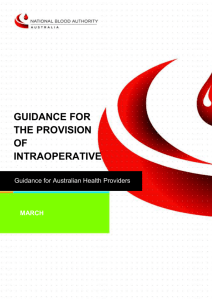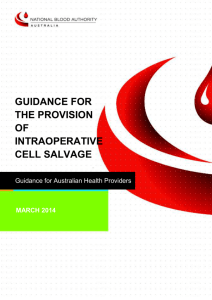Appendix VII Intraoperative Cell Salvage
advertisement
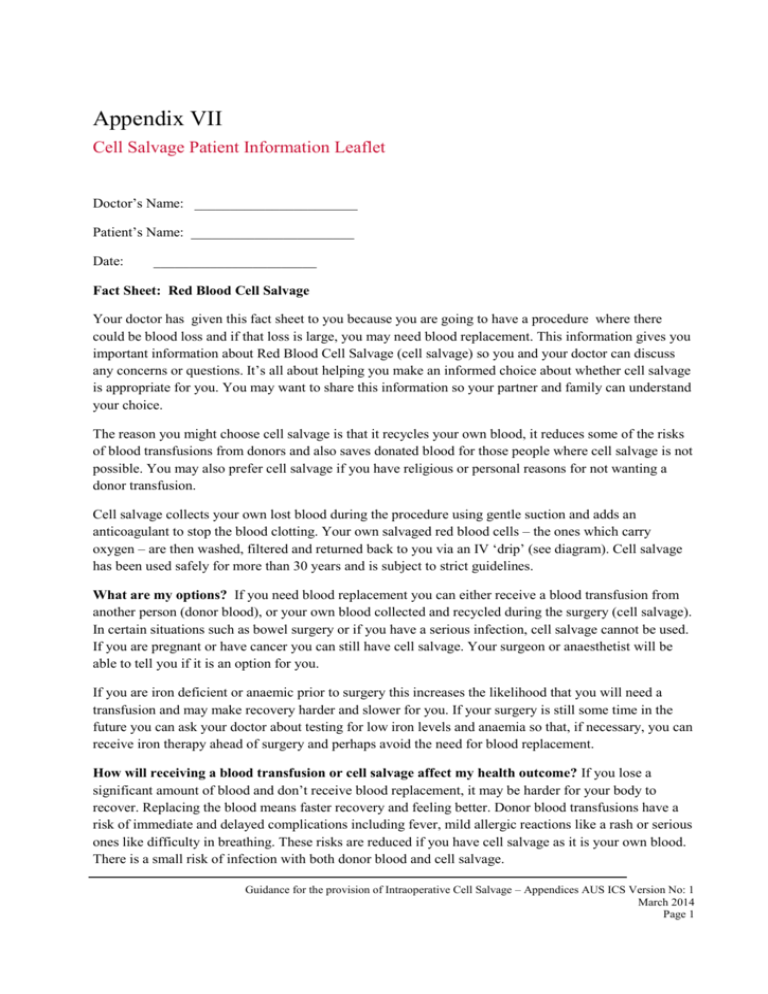
Appendix VII Cell Salvage Patient Information Leaflet Doctor’s Name: _______________________ Patient’s Name: _______________________ Date: _______________________ Fact Sheet: Red Blood Cell Salvage Your doctor has given this fact sheet to you because you are going to have a procedure where there could be blood loss and if that loss is large, you may need blood replacement. This information gives you important information about Red Blood Cell Salvage (cell salvage) so you and your doctor can discuss any concerns or questions. It’s all about helping you make an informed choice about whether cell salvage is appropriate for you. You may want to share this information so your partner and family can understand your choice. The reason you might choose cell salvage is that it recycles your own blood, it reduces some of the risks of blood transfusions from donors and also saves donated blood for those people where cell salvage is not possible. You may also prefer cell salvage if you have religious or personal reasons for not wanting a donor transfusion. Cell salvage collects your own lost blood during the procedure using gentle suction and adds an anticoagulant to stop the blood clotting. Your own salvaged red blood cells – the ones which carry oxygen – are then washed, filtered and returned back to you via an IV ‘drip’ (see diagram). Cell salvage has been used safely for more than 30 years and is subject to strict guidelines. What are my options? If you need blood replacement you can either receive a blood transfusion from another person (donor blood), or your own blood collected and recycled during the surgery (cell salvage). In certain situations such as bowel surgery or if you have a serious infection, cell salvage cannot be used. If you are pregnant or have cancer you can still have cell salvage. Your surgeon or anaesthetist will be able to tell you if it is an option for you. If you are iron deficient or anaemic prior to surgery this increases the likelihood that you will need a transfusion and may make recovery harder and slower for you. If your surgery is still some time in the future you can ask your doctor about testing for low iron levels and anaemia so that, if necessary, you can receive iron therapy ahead of surgery and perhaps avoid the need for blood replacement. How will receiving a blood transfusion or cell salvage affect my health outcome? If you lose a significant amount of blood and don’t receive blood replacement, it may be harder for your body to recover. Replacing the blood means faster recovery and feeling better. Donor blood transfusions have a risk of immediate and delayed complications including fever, mild allergic reactions like a rash or serious ones like difficulty in breathing. These risks are reduced if you have cell salvage as it is your own blood. There is a small risk of infection with both donor blood and cell salvage. Guidance for the provision of Intraoperative Cell Salvage – Appendices AUS ICS Version No: 1 March 2014 Page 1 What is the likelihood I will suffer a complication? The likelihood that you will experience a complication is small and varies depending on several factors including your individual characteristics, the type of blood product transfused and which procedure you have. You should ask your doctor about your individual risks so you can give informed consent for cell salvage. Additional Information: You can obtain additional information from your clinicians (doctor, surgeon, anaesthetist, or nurse) or at www.blood.gov.au. Diagram used with permission from the University Hospital of South Manchester NHS Foundation Trust, Department of Medical Illustration Ref: Esper, S et al. Intra-operative cell salvage: a fresh look at the indications and contraindications. Blood Transfusion 2011 Guidance for the provision of Intraoperative Cell Salvage – Appendices AUS ICS Version No: 1 March 2014 Page 2

